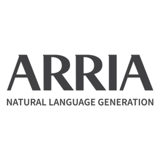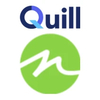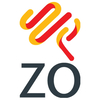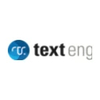NLG Software
NLG (Natural Language Generation) companies develop NLG software which helps companies auto-generate articles and reports +Show More
| Products | Position | Customer satisfaction | |||
|---|---|---|---|---|---|
|
|
Leader
|
Satisfactory
|
|
||
|
The AX Semantics Platform creates meaningful written content: product descriptions, news articles, business reports, documentation, and more.
Basis for EvaluationWe made these evaluations based on the following parameters; Customer satisfaction
Average rating
Market presence
Number of case studies
20-30 case studies
Company's number of employees
30-40 employees
Company's social media followers
2k-3k followers
# of funding rounds
7
Latest funding date
June 1, 2020
Company
Type of company
private
Founding year
2016
|
|||||
|
|
Leader
|
Satisfactory
|
|
||
|
Narrative Science is humanizing data like never before, with natural language technologies that transform data into plain-English stories.
Basis for EvaluationWe made these evaluations based on the following parameters; Customer satisfaction
Average rating
Market presence
Company's number of employees
10-20 employees
Company's social media followers
10k-20k followers
Total funding
$10-50m
# of funding rounds
7
Latest funding date
February 1, 2019
Company
Type of company
private
Founding year
2010
|
|||||
|
|
Leader
|
Satisfactory
|
|
||
|
Phrazor summarises data into a few bullet points, highlighting key insights required for decision making. It helps enterprises make their reports and insights easier to comprehend by writing a narrative along with each report. With Phrazor, you don't have to spend time analyzing numbers. Phrazor writes language to explain the key insights in words.
Key Features:
CREATE EASY-TO-UNDERSTAND REPORTS with language-based narratives.
EXPLORE HIDDEN INSIGHTS AND PATTERNS with intelligent insight generation capabilities.
GET PRE-BUILT TO CUSTOM REPORTING TEMPLATES across different functions & industries all under one roof.
COLLABORATE IN REAL-TIME WITH YOUR TEAM comment, assign, & tag them on the report.
CONVERSE WITH YOUR DATA asks queries & retrieve real-time insights on the go.
Basis for EvaluationWe made these evaluations based on the following parameters; Customer satisfaction
Average rating
Market presence
Company's number of employees
10-20 employees
Company's social media followers
4k-5k followers
|
|||||
|
|
Leader
|
Satisfactory
|
|
||
|
Natural Language Generation (NLG): Automated Insights is making the world's data understandable through natural language generation.
Basis for EvaluationWe made these evaluations based on the following parameters; Customer satisfaction
Average rating
Market presence
Company's number of employees
5-10 employees
Company's social media followers
5k-10k followers
Total funding
$10-50m
# of funding rounds
4
Latest funding date
June 30, 2014
Last funding amount
$5-10m
Company
Type of company
private
Founding year
2007
|
|||||
|
|
Challenger
|
N/A
|
|
||
|
Studio makes the best of Arria's technology available in one robust, easy-to-use tool.
Basis for EvaluationWe made these evaluations based on the following parameters; Customer satisfaction
Average rating
Market presence
Company's number of employees
50-100 employees
Company's social media followers
5k-10k followers
# of funding rounds
1
Latest funding date
January 1, 2023
Company
Type of company
delisted
Founding year
2013
|
|||||
|
|
Challenger
|
N/A
|
|
||
|
Artificial Intelligence software that dialogs, thinks, and advises using Natural Language Generation, Natural Language Understanding & more.
Basis for EvaluationWe made these evaluations based on the following parameters; Customer satisfaction
Average rating
Market presence
Number of case studies
5-10 case studies
Company's number of employees
100-200 employees
Company's social media followers
5k-10k followers
Total funding
$10-50m
# of funding rounds
3
Latest funding date
July 11, 2019
Last funding amount
$5-10m
Company
Type of company
private
Founding year
2007
|
|||||
|
|
Challenger
|
N/A
|
|
||
|
Independently generate individual texts with textengine.io, our self-service Natural Language Generation (NLG) platform.
Basis for EvaluationWe made these evaluations based on the following parameters; Customer satisfaction
Average rating
Market presence
Company's number of employees
50-100 employees
Company's social media followers
3k-4k followers
|
|||||
|
|
Niche Player
|
N/A
|
|
||
Basis for EvaluationWe made these evaluations based on the following parameters; Customer satisfactionMarket presence
Company's number of employees
10-20 employees
Company's social media followers
4k-5k followers
Total funding
$1-5m
# of funding rounds
6
Latest funding date
June 1, 2022
Last funding amount
$1-1m
Company
Type of company
private
Founding year
2015
|
|||||
“-”: AIMultiple team has not yet verified that vendor provides the specified feature. AIMultiple team focuses on feature verification for top 10 vendors.
Sources
AIMultiple uses these data sources for ranking solutions and awarding badges in NLG software:
NLG Leaders
According to the weighted combination of 4 metrics





What are NLG
customer satisfaction leaders?
Taking into account the latest metrics outlined below, these are the current NLG customer satisfaction leaders:





Which NLG solution provides the most customer satisfaction?
AIMultiple uses product and service reviews from multiple review platforms in determining customer satisfaction.
While deciding a product's level of customer satisfaction, AIMultiple takes into account its number of reviews, how reviewers rate it and the recency of reviews.
- Number of reviews is important because it is easier to get a small number of high ratings than a high number of them.
- Recency is important as products are always evolving.
- Reviews older than 5 years are not taken into consideration
- older than 12 months have reduced impact in average ratings in line with their date of publishing.
What are NLG
market leaders?
Taking into account the latest metrics outlined below, these are the current NLG market leaders:





Which one has collected the most reviews?
AIMultiple uses multiple datapoints in identifying market leaders:
- Product line revenue (when available)
- Number of reviews
- Number of case studies
- Number and experience of employees
- Social media presence and engagement
What are the most mature NLG software?
Which one has the most employees?





Which NLG companies have the most employees?
31 employees work for a typical company in this solution category which is 8 more than the number of employees for a typical company in the average solution category.
In most cases, companies need at least 10 employees to serve other businesses with a proven tech product or service. 7 companies with >10 employees are offering nlg software. Top 3 products are developed by companies with a total of 262 employees. The largest company in this domain is Yseop with more than 100 employees. Yseop provides the NLG solution: Yseop
Insights
What are the most common words describing NLG software?
This data is collected from customer reviews for all NLG companies. The most positive word describing NLG software is “Easy to use” that is used in 5% of the reviews. The most negative one is “Time consuming” with which is used in 2% of all the NLG reviews.
What is the average customer size?
According to customer reviews, most common company size for NLG customers is 1-50 Employees. Customers with 1-50 Employees make up 48% of NLG customers. For an average Conversational AI solution, customers with 1-50 Employees make up 49% of total customers.
Customer Evaluation
These scores are the average scores collected from customer reviews for all NLG software. NLG Software are most positively evaluated in terms of "Ease of Use" but falls behind in "Customer Service".
Where are NLG vendors' HQs located?
Trends
What is the level of interest in NLG software?
This category was searched on average for 173 times per month on search engines in 2024. This number has decreased to 0 in 2025. If we compare with other conversational ai solutions, a typical solution was searched 612 times in 2024 and this decreased to 0 in 2025.
Learn more about NLG Software
Natural Language Generation (NLG) includes techniques for translating information into text. NLG is a subset of Natural Language Processing (NLP). If natural language processing techniques can be separated into two, Natural Language Understanding (NLU) is the part that analyzes natural language, NLG is the part that synthesizes meaningful text for human consumption. NLP=NLU+NLG. For example, let's imagine that you are writing to a conversational AI solution. When you ask what the weather is like today, NLU techniques are used first to understand your intent. Weather data is then searched, the results are analyzed and an answer generated thanks to NLG techniques.
NLG techniques can be used to automatically summarize and explain data in a human-like manner. NLG can automate the transfer process of analyzed structured data to humans in seconds.
NLG saves time and costs as well as contributes to scalability and consistency via automating repetitive processes involving language.
- Time and cost savings: NLG reduces time and costs as it speeds up the reporting processes.
- Reporting consistency: Reports can be precise and standardized as though they are created by one person. Accuracy of the reports can be improved by time as NLG solutions advance.
- Scalability: By automating parts of the reporting and content generation processes, it becomes possible to create large amounts of content.
Important factors in evaluating an NLG solution are: evaluating use cases, the existence of suitable data sources, security, language capabilities and vendor dependency.
- While evaluating NLG solutions, it is necessary to find vendors that provide solutions for a particular use case. For example, an NLG solution trained to prepare content in the field of e-commerce would not be suitable for reporting the efficiency of IoT devices.
- NLG solutions can be as good as the underlying data. The project team needs to ensure that they have the structured data which can be combined with the NLG solution to serve users.
- The audience of the reports or content is important. Publishing public content is always risky and would require a more robust quality assurance process.
- In situations where language skills are important, a robust assessment of the NLG tools' language capabilities is necessary. For example, correct use of language is far more important in media and journalism compared to a company's internal reporting.
- Large-scale enterprises can build their own NLG engines using open source solutions and minimize vendor dependency. Two aspects are important in this decision: 1) Is the use case highly specialized? If yes, it may be harder to find an NLG solution from a vendor for that case. 2)Is this a simple or difficult NLG problem? Simple problems can be easily resolved with open source packages.








